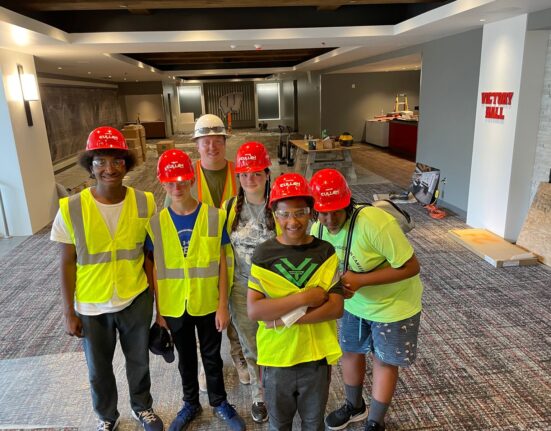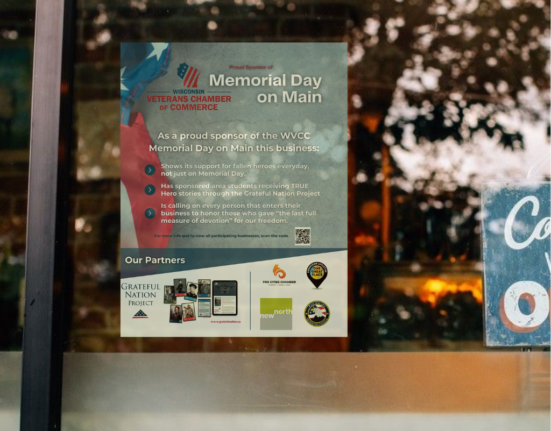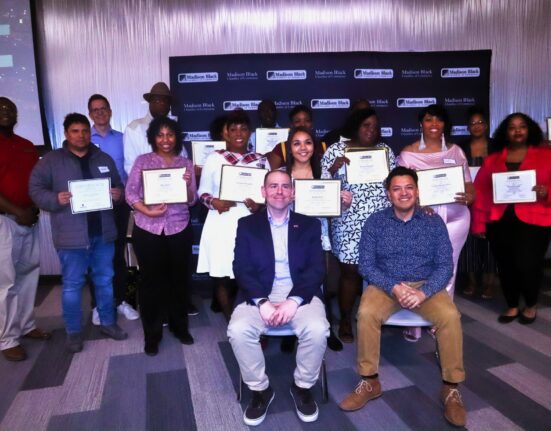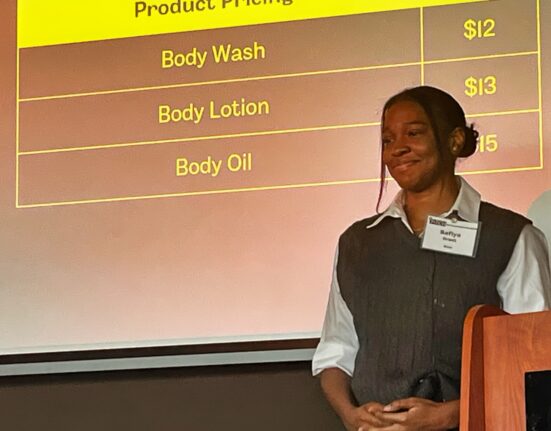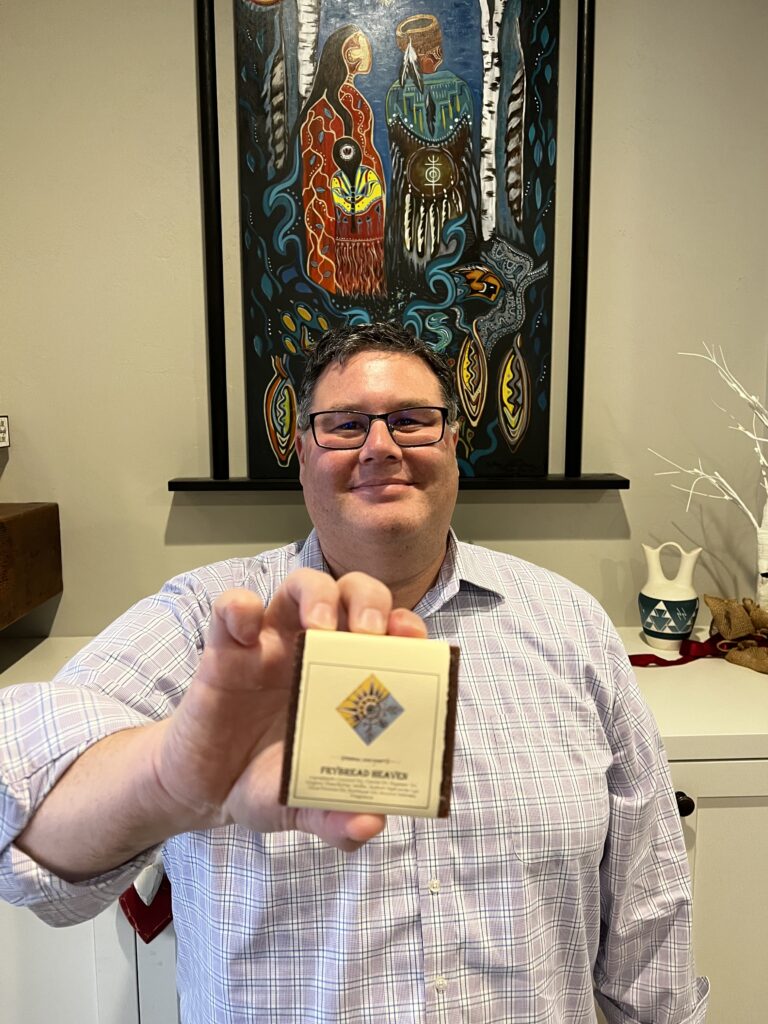
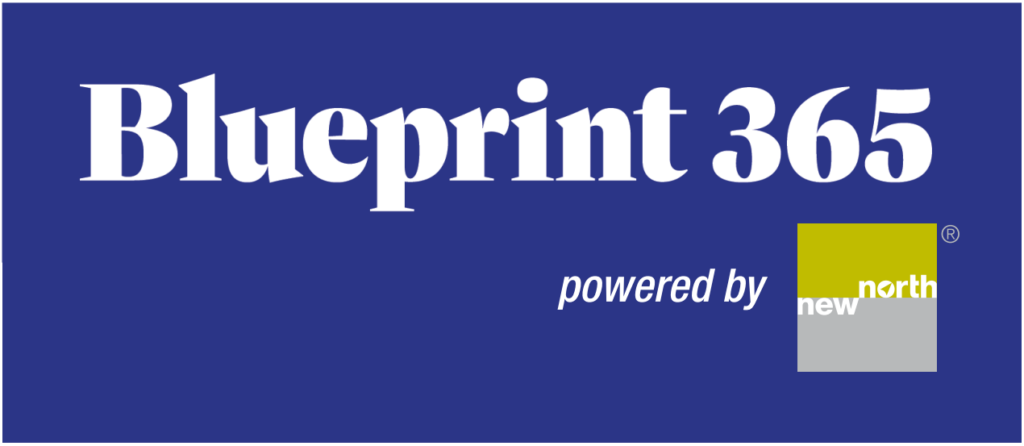
Healthy skin and Indigenous awareness. Tribal Sun Soap marries its founder’s drive to care for his sensitive skin and uplift Native communities around the United States with all-natural soaps inspired by Indigenous culture.
Dennis Zack started Tribal Sun Soap, based in Oshkosh, when he grew to have the same problems his mother had with her skin. She had issues with sensitive skin and eczema and would try a variety of prescription lotions. As Zack grew older, he experienced the same issues but decided to delve into his own research to find a healthy, all-natural solution that would help his skin and be safer for the environment. He started Tribal Sun Soap last year as the result of his pursuit.
He tried as many solutions as he could before starting Tribal Sun Soap — but the cost was unrealistic for how quickly he would run through products. He tried Dr. Squatch and Duke Cannon, both soap brands that provide minimally processed soaps, until he dug further to find where the soaps were being manufactured and figured he could do the same to meet his own needs.
“You start reading a little bit more and wanting to understand a little more about the products you’re putting on yourself,” Zack said. “Then looking at, ‘what can I do for myself? What am I using?’ Then I started going down the road of just looking at the stuff that was out there.”
Zack’s journey to start Tribal Sun Soap first took him to a family in northern Indiana that’s been making soap since the early 2000s. He enjoyed their soap and went on to talk to the soap manufacturers more. He took inventory of what he knew he wanted — a quality, affordable soap that helped address issues with his skin and find a way to uplift his community.
Zack went to his tribe, the Stockbridge Munsee Band of the Mohican Indians in Central Wisconsin, to speak with an artist who had worked on a family portrait of his to get a logo created. But he knew he could do more than just soap. Zack wanted to use his new Tribal Sun Soap as a platform to uplift his community and other Indigenous communities around the country.
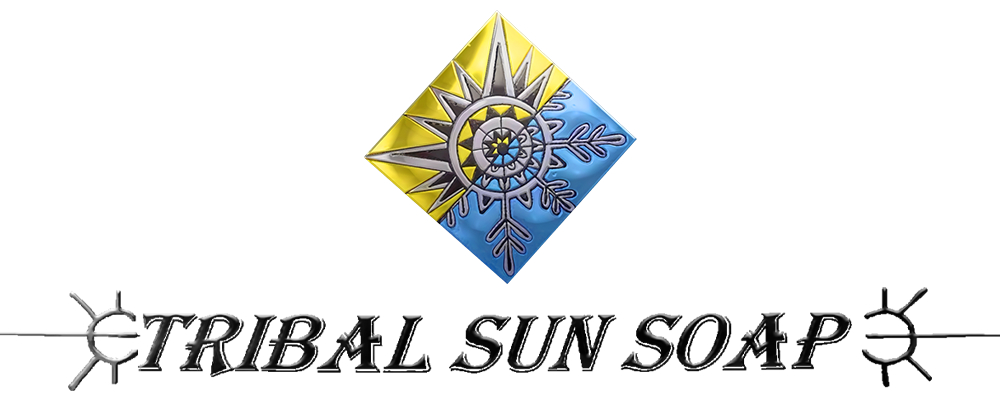
“It grew with what scents were available, what scents can I create, and then it grew more into, I could actually use this as a platform to work with Indigenous artists, small businesses to help raise our brothers and sisters up,” Zack said.
Tribal Sun Soap continued to grow, and it expanded its outreach to organizations dedicated to helping Indigenous communities.
The soap company now works with three organizations: Walking Women Healing Institute, a group dedicated to addressing and preventing missing and murdered Indigenous women and acts of sexual violence; Red Magic, a non-profit dedicated to the advancement and perpetuation of Native American arts, artists and culture; and Bree’s Closet, which provides gently-used clothing for all ages along with hygiene products, dolls, bags and blankets.
Beyond supporting organizations, the product itself aims to educate and promote Indigenous culture. The soaps are named after cultural touchstones for tribes around the country.
For example, the scent “Frybread Heaven,” is named after the Indigenous flat bread that’s fried in oil, shortening or lard. The food has multiple iterations but is a cultural staple in Native American cuisine. Zack hopes that seeing the names of each sent, like Frybread Heaven, will spark an interest with buyers and lead them down a path of research to become more aware of Indigenous cultures.
“There’s over 500 different Indigenous tribes in the United States, and beyond our borders,” Zack said. “Things like that are Indigenous that maybe somebody doesn’t know like, ‘What’s frybread? Let’s check this out a little bit.’”
Tribal Sun Soap is looking to expand its offerings. It currently offers soaps and has recently added bath bombs, but is looking to add lotions into the mix now that Tribal Sun Soap has been in business for a year.
Tribal Sun Soap can be purchased on its website and select Indigenousd-owned businesses across the U.S.

